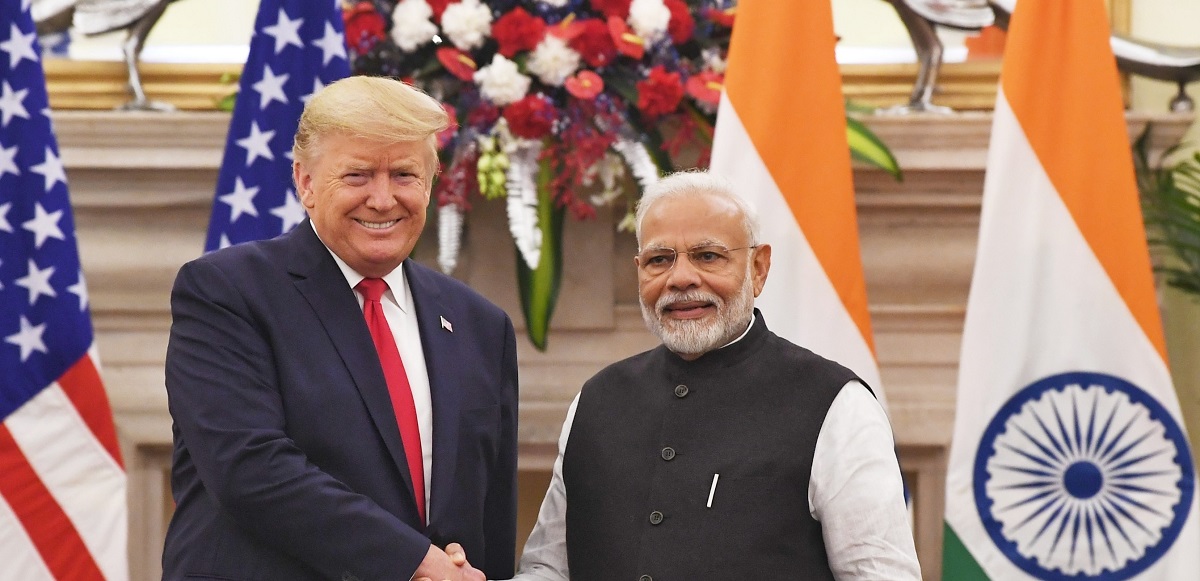Google Search for Web:
Kajal Agrawal
Error validating access token: Session has expired on Sunday, 31-Mar-24 00:00:14 PDT. The current time is Thursday, 17-Apr-25 02:04:24 PDT.
Strongmen rush to remake the world order as Trump faces potential election defeat Featured
Super User
05 July 2020

London :This past week, on US President Donald Trump's watch Russia and China have effectively re-aligned the coming world order. They didn't do it together, but both took advantage of uncertainty and unpredictability that Trump has helped create.
It's far from clear that the next US President will be able to roll back the consequences of this week, which leave both Presidents Vladimir Putin in Moscow and Xi Jinping in Beijing more decisively in control of their own countries and more able to act assertively.
In other words, Trump has made an indelible mark on the world -- and it may not be for the good.
It is no coincidence that Putin and Xi have cemented their grip on cherished goals, as the clock runs down on Trump's first, and possibly only, term in office.
This past week, in a referendum on constitutional revisions so predictable that copies were on sale before the vote, Putin has effectively been made President for life, as Xi has moved equally ruthlessly, taking control of Hong Kong through a new national security law, while telling US allies Canada, Australia and the UK to keep out of China's internal affairs.
Both seem to be of the view the US has neither the will nor the consistency to put up resistance. Indeed, Trump's White House gave evidence of exactly that this week, floundering for a coherent response to allegations Russia paid the Taliban to kill US forces in Afghanistan. The Russian Embassy in Washington and the Taliban have both denied the claims.
close dialog
According to White House deputy press secretary Sarah Matthews: "President Trump is a world-class negotiator who has consistently furthered America's interests on the world stage."
Former senior US officials provided CNN contributor Carl Bernstein with a very different take. They thought Trump "delusional" about his ability to bend other leaders to his agenda, believing he could "either charm, jawbone or bully almost any foreign leader into capitulating to his will."
But Putin "just outplays him," said one of Bernstein's sources. Trump's "fawning over authoritarian strongmen, his ignorance of history and lack of preparation" jeopardized US national security, Bernstein was told.
Whether it's Putin's payback or Xi's decision to violate and chip away at the Hong Kong agreement signed with the UK in 1984, both leaders appear to see opportunities.
Go back three years. Russian Foreign Minister Sergey Lavrov dropped into the Oval Office the day after Trump fired James Comey as FBI director. Comey was overseeing the investigation into allegations of Russian election meddling. An official Russian photographer caught the bonhomie, as Trump told his visitors: "I just fired the head of the FBI. He was crazy, a real nut job."
Two months later, Trump met Putin -- alone -- on the margins of the G20 summit. The White House trumpeted the encounter as a success, highlighting a new ceasefire deal in Syria. The Russians cynically used the deal to freeze the conflict, allowing the Assad regime backed by Russia to pick off rebel-held areas one-by-one.
Trump could have protested, ripped up the deal, forged a new US policy on Syria that would have crimped Russia's growing influence in the Middle East. Instead he bought the lie.
It would be a recurring theme. Trump's former national security adviser John Bolton recalls in his new book "The Room Where It Happened" Trump's 2018 meeting with Putin in Helsinki, Finland.
"Putin had to be laughing uproariously at what he had gotten away with," writes Bolton, after Trump accepted Putin's assurances there had been no Russian interference in the 2016 US campaign.
So fast forward to this year as Putin, in power for 20 years, needed a constitutional fix to hold on for longer. He appears to calculate that despite tightened US sanctions over his invasion of Ukraine, and the poisoning of exiled former agent Sergei Skripal in the UK, Trump won't push back for what he does at home.
He was right. He is now effectively President for life, hoping to emulate Soviet leaders by stepping down only into his grave.
Xi's experience with Trump has been different. Tangled in a trade war, he has had to calculate Trump's real intent: on money, human rights issues, such as the Uyghurs or Hong Kong, and simply stopping the rise of the world's next superpower.
Read 2140 times
Published in
International
Latest from Super User
- US Student Visa Revoked: Several Harvard students lose their visas, could face deportation
- Pakistan army crosses LoC in Jammu and Kashmir's Poonch, opens fire, India retaliates
- Saudi Arabia Support Sudan in civil war
- China blocks its firms from investing in US ahead of trade war escalation
- Former Pakistani PM Nominated for Nobel Peace Prize



































